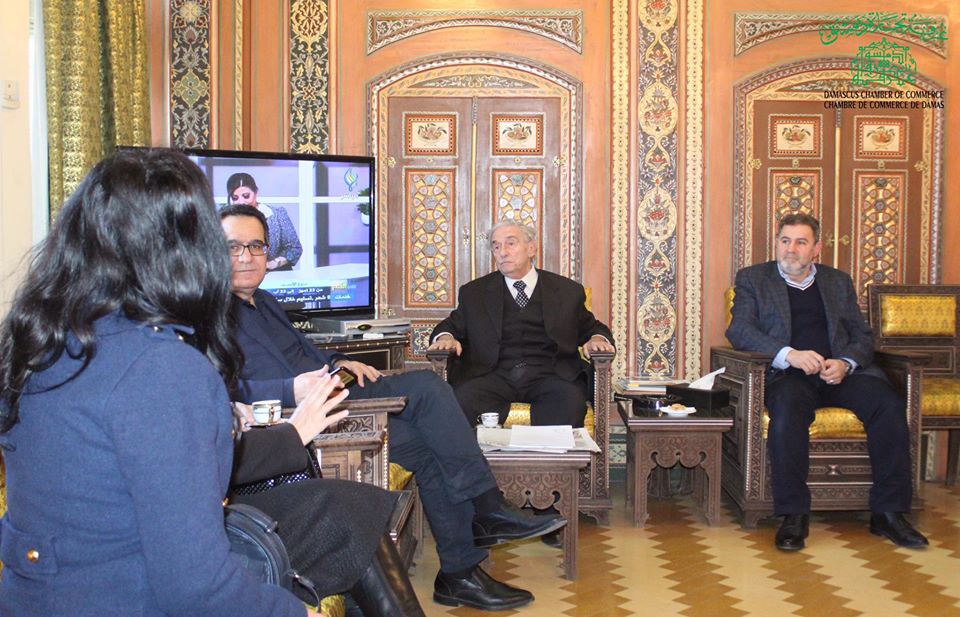Talal Barazi, Minister of Trade and Consumer Protection, visited the Damascus Chamber of Commerce. The President of the Chamber of Commerce, Ghassan Qalaa, said such a visit had not happened in half a century, as traders are the ones to take it upon themselves to visit the minister, and not the other way around.
According to Al-Watan, Qalaa said, “Barazi has set a precedent. This is the first visit of its kind to the Damascus Chamber of Commerce in 47 years. Previously, the merchants were the one who visited [the minister].”
The meeting between Barazi and the Damascus merchants comes with the aim of, “looking at the reality of commercial markets and guaranteeing the flow of goods and price stability in a way that serves the country, merchants and citizens.”
He added, “I am mobilizing you, knowing that more than 50 or 60 of you are entrepreneurs, to bridge the gaps. I call on you so that today we can have the will to defy and remain steadfast through initiatives, and our pound will improve.”
Barazi said, “It is up to merchants to contribute to social responsibility, which starts with helping a few families and broadens to expand the workforce and employment. Merchants make a huge contribution to the economy and are looked upon with respect, including the smallest commercial store employing just two workers.”
For their part, merchants announced the launch of initiatives, including lowering prices, and asked the government to extend opening hours permitted for stores to 10pm, after they were ordered to shut at 7pm due to coronavirus.
The Assad government has intensified meetings between ministers and businessmen in the past several days, aiming to rely on local production to face sanctions.
This article was translated and edited by The Syrian Observer. The Syrian Observer has not verified the content of this story. Responsibility for the information and views set out in this article lies entirely with the author.


